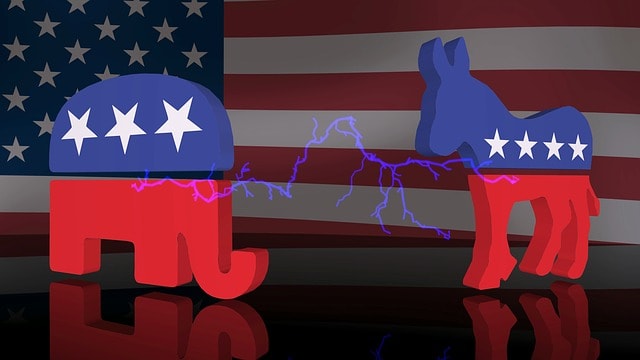Latest news about Bitcoin and all cryptocurrencies. Your daily crypto news habit.
Many people believe that the voting process is going to be a lot high-tech in the coming years, thanks to the blockchain technology. However, the experts on election security are frowning over it.
West Virginia is going to be the first state in the US to run a blockchain based election and has received harsh criticism from security researchers.
In recent May, they tested a mobile app that will be the primary platform for voting. This system, developed by Voatz, uses biometric authentication to identify registered voters. After authentication, a person is allowed to vote, and the ballot is recorded in the blockchain.
West Virginia isn’t the first place attempting an online election. Tsukuba in Japan had its first blockchain-based voting this year. It’s also the first city in Japan to start a blockchain based voting system. The Estonian government uses blockchain in several government projects and might introduce it in their voting process as well.
Why Security Researchers Dislike Blockchain Voting
While blockchain based voting seems pretty efficient, there are severe flaws in this system. In 2015, a research team of computer scientists and cryptographers observed the online voting prospects and determined that the use of blockchain in voting is not feasible – at least not yet.
According to Matt Blaze, a security researcher, blockchains aren’t bad, but they introduce new vulnerabilities in the system that weren’t there before.
One concern that several security experts have is that it is challenging to protect a network from hacking. And when it’s something as big as the elections, it’s incredibly hard to set up a system that will preserve all attributes of a democratic electoral process.
Josh Benaloh, a researcher at Microsoft, believes that “it is a terrible mismatch for the voting and election space.”
Besides, hacking isn’t the only concern. Benaloh says that it’s possible for miners to escalate their influence. Validation of blocks depends on the computing power of the nodes, so if one miner acquires computing power that is over half the computing power of the network as a whole, they will become the majority of the blockchain. This will allow that single miner to control the blockchain in any way they want.
 US Elections: When they will be blockchain based?
US Elections: When they will be blockchain based?
While the data in the blockchain will be encoded, there can be vulnerabilities before the encoding of data in the blockchain. For example, there might be a virus in your system that changes your vote the moment you spend your token.
Another computer security expert, Dan Wallach from Rice University, thinks that people are being too optimistic about blockchain and things could be more difficult than anticipated.
There are also some real world challenges to online voting. Right now, people come to secure areas to vote. However, when it’s done inside your own home, there might be someone with a gun to your head, forcing you to vote for a particular party.
Or, people could be manipulated with money to vote for a particular party. When you’re voting in a hidden way, no party can get to know who you voted for, even if they paid you to favor them. But with an app, they can monitor if you’re voting for their candidate.
The Utah Experiment
The Republican Party Utah branch used blockchain for online voting in March 2016 and faced a lot of problems.
Each user had to register on the app, and they’d receive a cryptographic key on signing up. They would need to enter that key when they voted. Voters were allowed to change the vote before finally submitting the vote.
This plan of using blockchain saw a lot of skepticism from the press and technologists over security issues. When it was the caucus day, several users were reported to be confused over the app, and many others were just hesitant of using the new system.
Result – not very successful.
Can Blockchain Be Used in Major Elections?
There is no doubt that the blockchain technology has several advantages. However, it’s not a master key that will solve all problems. There are still several issues with verification and anonymity. If these issues are adequately resolved, blockchain can be extremely beneficial in the voting process. For example, it can ensure that the data is completely secured and cannot be altered.
Many security researchers believe that blockchain isn’t secure because it’s online and thus faces a lot of threats. However, since blockchain is still in its nascent stage, it will evolve with time and counter the issues it faces today. Blockchain based voting will need to be tested extensively before it can be launched on a state or national scale.
Disclaimer
The views and opinions expressed in this article are solely those of the authors and do not reflect the views of Bitcoin Insider. Every investment and trading move involves risk - this is especially true for cryptocurrencies given their volatility. We strongly advise our readers to conduct their own research when making a decision.